Southeast Asia Program
Language Resource Center Speaker Series - The Southeast Asian Language Council (SEALC) Projects, 2019–2024: Cornell Collaborations
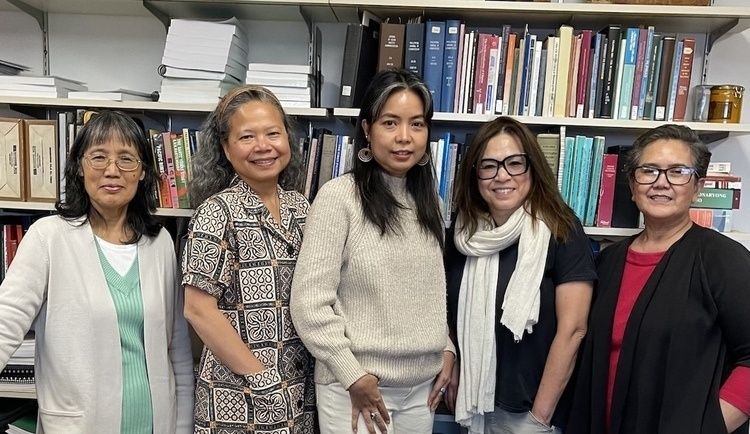
February 11, 2026
4:00 pm
Stimson Hall, G25
"The Southeast Asian Language Council (SEALC) Projects, 2019–2024: Cornell Collaborations"
Yu Yu Khaing, Jolanda Pandin, Hannah Phan, Thess Savella, and Thúy Tranviet
Cornell University
The Southeast Asian Language Council (SEALC) is a national organization that promotes and coordinates initiatives in Southeast Asian language teaching by working closely with the National Resource Centers (NRC) for Southeast Asian Studies, the Council of Teachers of Southeast Asian Languages (COTSEAL), the Southeast Asian Summer Studies Institute (SEASSI), and area-specific organizations such as Cornell’s Southeast Asia Program (SEAP).
From 2019–2024, SEALC received a five-year grant from the Henry Luce Foundation to support six workshops focused on developing and evaluating instructional materials to strengthen Southeast Asian language instruction. These workshops addressed oral proficiency, project-based and heritage learning, reading materials development, listening assessment, and publication, and were hosted at institutions across the U.S., in Asia, and online for Southeast Asia-based instructors.
At Cornell, five of the six Southeast Asian language faculty—representing Burmese, Indonesian, Khmer, Tagalog, and Vietnamese—participated in various phases of this initiative. In this session, they will share their contributions to the SEALC projects and reflect on their experiences collaborating with colleagues across multiple institutions in both the U.S. and Asia.
Yu Yu Khaing (Burmese) will share collaborative work on Burmese Reading Proficiency Tests from the perspectives of both teachers and learners. She will also highlight how she uses proficiency-based assessment practices in her course quizzes and tests.
Jolanda Mendaun Pandin (Indonesian) participated in five SEALC projects. These collaborative efforts began with seven experienced language faculty in the U.S. and Singapore and later expanded to 14 faculty members from the U.S., Indonesia, Singapore, and Japan. In her presentation, she will focus on two projects: the Oral Proficiency Project (2019–2020), which identified Indonesian-specific language features missing from the 2012 OPI guidelines, and the Listening Assessment Design and Development Project (2024), which strengthened the Indonesian program’s curriculum by advancing listening assessment design and practices.
Hannah Phan (Khmer) will discuss two collaborative projects with Khmer language instructors in the U.S. following her participation in the SEALC projects: the Project-Based Language Learning (PBLL) (2020-2021) and the Reading Materials Development Workshops (2023). She will highlight how these workshops informed methodological approaches, material development, and assessment practices for language teaching and acquisition.
Thess Savella (Filipino/Tagalog) will discuss her collaboration with fellow Filipino language instructors from various universities in the U.S. on two SEALC projects: the Filipino Oral Proficiency Guidelines (OPG) Project 2 (2019–2020) and Listening Assessment Design and Development (2024). She will also provide context on the pre-SEALC Filipino OPG Project 1 (2011–2012), which informed the design of the OPI Project 2.
Thúy Tranviet (Vietnamese) will both open and close the session. She will begin by briefly outlining the six SEALC projects and conclude by highlighting her participation in three — OPG, Reading Materials Development, and Listening Assessment — including the materials she developed for her classrooms and the lessons learned. She presented these insights at the final symposium, Piloting the Proficiency-Based Instructional Materials and Assessment Tools: Insights and Lessons Learned, held in September 2025 at the University of Hawai’i, which marked the culmination of the SEALC projects.
Bios (in alphabetical order by last name):
Yu Yu Khaing (M.A., 2025) is a Senior Lecturer who teaches Burmese at all levels. Since joining Cornell in 2015, she has developed immersive Burmese language courses and multimedia learning materials, supported by a Cornell teaching innovation grant. She is also a certified ACTFL–ILR tester.
Jolanda Mendaun Pandin (M.A., 2000 and 2002) is a Senior Lecturer of Indonesian at Cornell. In 2017, she became the first President of the Consortium for the Teaching of Indonesian (COTI) after its transition to a non-profit, serving two terms from 2017–2023. Since 2015, she has developed conservation-focused listening materials for all levels and actively participated in the Veterinary School’s summer conservation project and One World Health course. A certified ACTFL tester since 2020, she has also collaborated on most SEALC projects since 2019.
Hannah Phan (MPS, 1998) joined Cornell in 2005 as a full-time Khmer instructor. She brings extensive training and experience in language teaching, having studied second-language pedagogy in Russia and Singapore. She has many years of classroom experience and has been a certified ACTFL tester in Khmer since 2009.
Thess Savella (M.A. 1997 and 2000) has taught all levels of Filipino at Cornell since 2002 and currently serves as President of the Consortium for the Advancement of the Philippine Languages and Cultures (CAPLAC). In 2023, she was one of two recipients of Cornell’s Sophie Washburn French Instructorship. She is also a certified ACTFL–ILR tester (since 2013) and a Seal of Biliteracy (SOBL) certification tester (since 2020). Her recent SEALC work include the Filipino Oral Proficiency Guidelines (OPG) Projects 1 and 2 and the Listening Assessment Design and Development Project.
Thúy Tranviet (Ph.D., 2015) has taught Vietnamese at Cornell since 1995. Over three decades, she has created extensive instructional materials for courses at all levels and in multiple formats. An interdisciplinary scholar, her interests span language and literary studies, international education, and international development. In addition to language courses, she has taught content-based courses on community engagement and climate change, including a field trip to Vietnam where students explored environmental issues in both global and local contexts.
This event will be held in person in G25 Stimson and will also be streamed live over Zoom (registration required). Join us at the LRC or on Zoom.
The event is free and open to the public.
Additional Information
Program
Einaudi Center for International Studies
Southeast Asia Program
Rightless Resistance

Rightless Resistance investigates why resistance to land grabbing so often fails. The rapid expansion of oil palm plantations has triggered widespread conflict across rural Indonesia, as communities lose their land with little compensation. Based on an unprecedented study of 150 such conflicts, this book uncovers how villagers fight back against palm oil companies, and what their struggles reveal about power, law and citizenship in postcolonial Indonesia.
Book
Additional Information
Program
Type
- Book
Publication Details
Publication Year: 2026
ISBN: 9781501785962
Why Southeast Asia Fights Over Food—but Shouldn’t
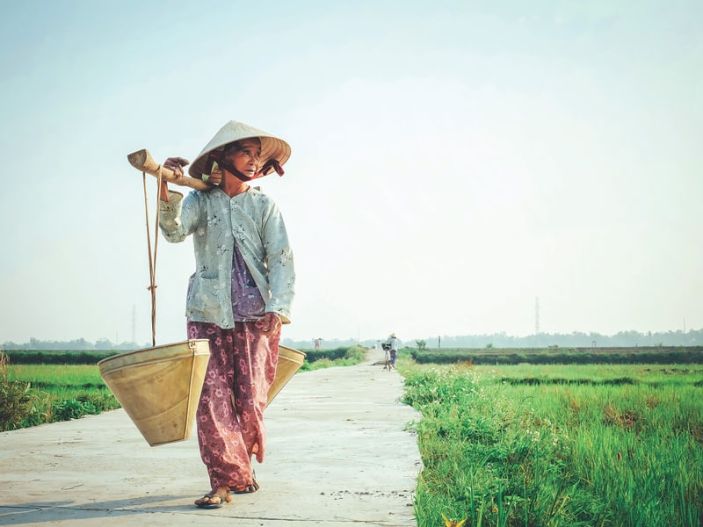
Joshua Kam, SEAP Grad Student
Joshua Kam, a doctoral Asian Studies student, offers insight on the history and cultural symbolism of native Southeast Asian fruits.
Additional Information
New Work in Southeast Asian Studies: The 28th SEAP Graduate Student Conference
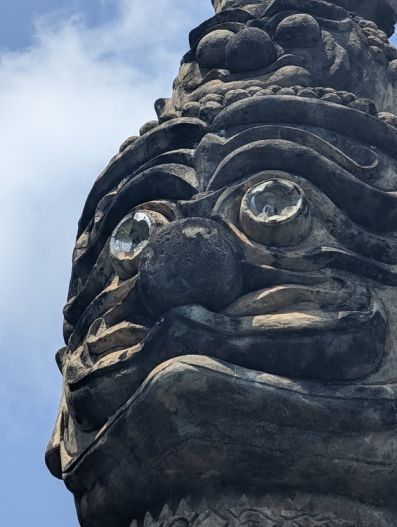
March 6, 2026
9:00 am
Kahin Center
The Southeast Asia Program’s annual graduate conference offers a space for scholars of Southeast Asia to share new work, receive feedback, and engage with peers and faculty across disciplines.
This year’s special-format conference will feature a mix of panel presentations and individual talks from current SEAP graduate students, creating room for discussion and reflection on emerging scholarship in Southeast Asian studies.
Faculty organizers encourage speakers to explore intersections across their projects as they prepare their presentations. Abstracts and titles from presenters are due January 21, 2026.
Photo contributed by Anna Koshcheeva, from the Buddha Park near Vientiane, Laos.
Additional Information
Program
Einaudi Center for International Studies
Southeast Asia Program
Global Intern Explores Archives, Creates Community

Emma Alexander '26 in Cambodia
Alexander writes: “This internship solidified my interest in global academic work and deepened my commitment to cross-cultural storytelling.”
Additional Information
The Political Legacy of War in Southeast Asia
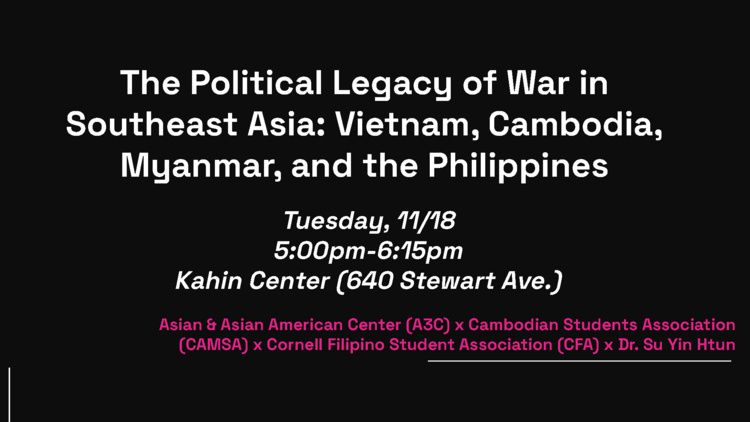
November 18, 2025
5:00 pm
Kahin Center
Join us for a teach-in on how the political legacies of war continue to shape governance, identity, and everyday life in Southeast Asia. The session focuses on Vietnam, Cambodia, Myanmar, and the Philippines, and will be led by student presenters from the collaborating organizations and CDM law professor and human rights educator Dr. Su Yin Htun.
This event is a collaboration between the Asian & Asian American Center, the Cambodian Student Association at Cornell, the Cornell Filipino Student Association, and the Southeast Asia Program.
Dinner from Taste of Thai will be provided. All are welcome. Please RSVP: https://cglink.me/2ee/r2295106
Additional Information
Program
Einaudi Center for International Studies
Southeast Asia Program
Cornell Gamelan Ensemble with Peni Candra Rini (CU Music)
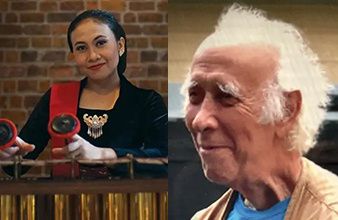
December 11, 2025
3:00 pm
Lincoln Hall, B20
The Cornell Gamelan Ensemble is joined by singer and composer Peni Candra Rini for a concert held in memory of the ensemble’s founder, Marty Hatch, who passed away in August. The program features Rini’s compositions along with some of Hatch’s favorites from the standard repertoire.
Additional Information
Program
Einaudi Center for International Studies
Southeast Asia Program
Einaudi Students Learn in Global Communities
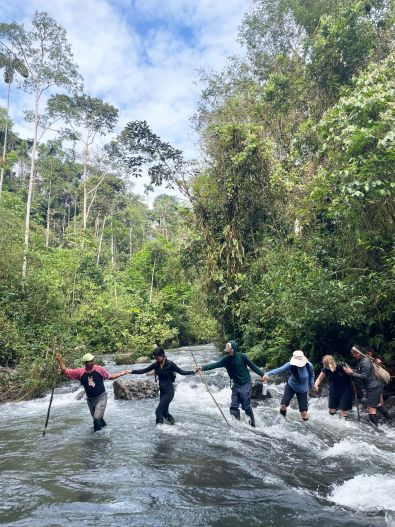
Laidlaw Scholars in Ecuador and Global Intern at Singapore Hub
We sent Cornell students abroad last summer to benefit from learning communities. They'll share their work at a Nov. 19 showcase.
Additional Information
Why Indonesia’s Hero Status for ‘Successful Autocrat’ Suharto Splits Opinion

Tom Pepinsky, SEAP
Tom Pepinsky, a professor of government at Cornell University specializing in Southeast Asian politics, provides analysis on how Suharto's legacy continues to shape Indonesian politics.
Additional Information
Indonesia in 10 Films
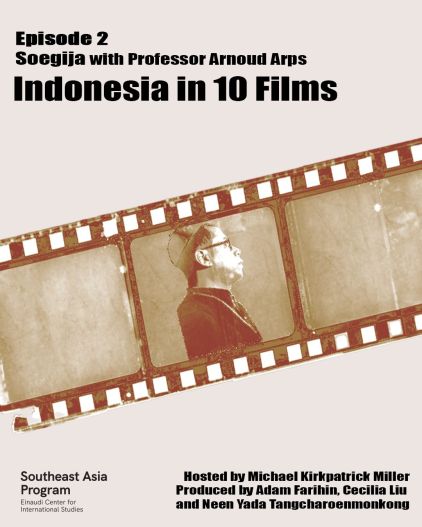
Episode 2 of the podcast out now.
In this second episode, host Michael Kirkpatrick Miller explores the film Soegija (2012), an ambitious historical drama by director Garin Nugroho.
Soegjia follows the non-traditional Catholic national hero Monsignor Albertus Soegijapranata, during one of the most volatile periods in Indonesian history — from the Japanese occupation to the return of Dutch forces after World War II. Rather than focusing solely on its titular figure, the film paints a multifaceted image of intersecting lives of diverse characters.
Michael first speaks with Neen about the film’s cinematography, then interviews Dr. Arnoud Arps, Assistant Professor of Extended Cinema, Film Heritage and Memory at the University of Amsterdam. Dr. Arps, who previously interviewed Garin Nugroho, shares the director’s intention to create a film grounded in humanity and emotional resonance. He also collaborated with the Eye Filmmuseum and the National Museum of Indonesia to curate a special screening series on Indonesian War of Independence films, with Soegija selected as one of the featured works.
Together they discuss the three major waves of the Indonesian Independence War films, the evolution of how nationalism, heroism, and “Merdeka” are portrayed, and the film’s subtle treatment of colonizers and revolutionaries, particularly through the conflicted character Robert.
Listen to our newest episode here: https://gattyrewind.libsyn.com/
